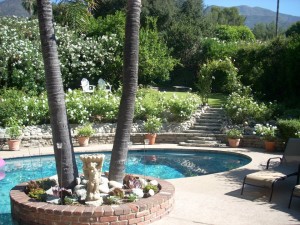My post refuting a Facebook meme on same-sex marriage continues to draw comments from people who challenge my right to say anything about this topic, even though I prefaced my remarks with quite a bit of personal history that contributes to my own ambiguity on the topic. I understand that I come across as doctrinaire and unfeeling, just as the Church does when she defines marriage. I understand that if it is your life that is being questioned or limited in some way, you don’t want to hear about it. As a woman who once believed herself sincerely called to priesthood in a Church that defines priesthood as essentially and exclusively male, believe me, I know.
But no matter how much I wanted to be a priest, no matter how deeply I experienced the call, no matter how “unfair” and discriminatory the Church’s understanding of priesthood felt to me, no matter how weak and illogical and not-the-way-Jesus-would-have-done-it the theological arguments against admission of women to priesthood struck me, the truth is I am not a Catholic priest. I have no claim on Catholic priesthood. It is a state of life not open to me, even if I were to work for some constitutional amendment requiring equal ministry under the law, or sue the Church for discrimination. This truth does not mean I cannot and do not minister, preach, bless, pray for, counsel, and admonish in the ways that are open to me through my baptismal priesthood. It does not mean I am bad or evil or less-than. It acknowledges—and I acknowledge, by assent of will to the teaching—that states of life are not enntitlements, but gifts, and that each has a unique meaning and value. Vocations are not interchangeable.
Marriage, according to that same teaching to which I assent, is defined as the lifelong union of a man and a woman who are open to the gift of life as they are capable of receiving it. Outside of that definition, there are a whole range of relationships that may be loving, stable, fruitful, and happy. But they are not marriage. I don’t say that to hurt anyone, or imply that anyone outside that definition is bad or evil or less-than.
This whole question of the meaning and value of marriage for family and society and religion—and even for the two individuals involved, which is where most people start and end, though marriage, as an institution, is ordered to the common good, not individual happiness alone—is too important to degenerate into sniping. And since I can’t seem to find ways to say what I say without ramping up the snipe, I’m giving you a gift today.
While I’m in my West Coast lull, take the time to read the reflections of my wise and kind online friend Will Duquette, who began posting a series of reflections on how to talk about the meaning of marriage here at his blog, The View from the Foothills. You can thread your way from the beginning through a number of followup posts, each of which manages more sense and respect than I can in a year of twaddling. The foothills that Will writes from are the San Gabriels, the same sleeping-lion mountains that I am looking at now from my getaway office on my sister’s Pasadena patio. They remind me that sometimes the only way to continue a conversation that has the potential to be painful is to lift it to a new level. As the psalmist says, in my guilty-pleasure King James Version of Psalm 121:
I will lift up mine eyes unto the hills,
whence cometh my help.
Read Will. Lift your eyes. And accept my apologies for not always acknowledging sufficiently the soreness of the subject.












